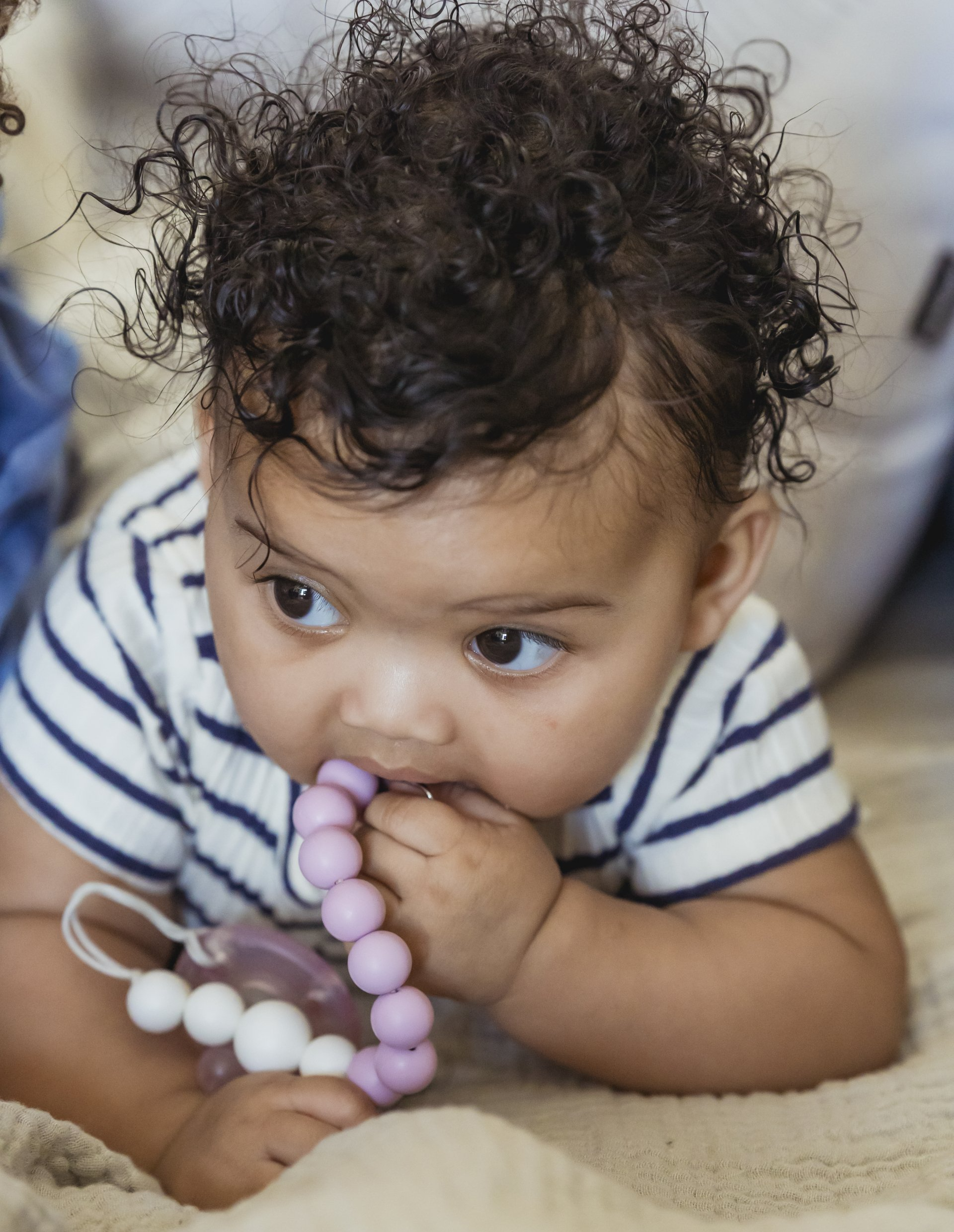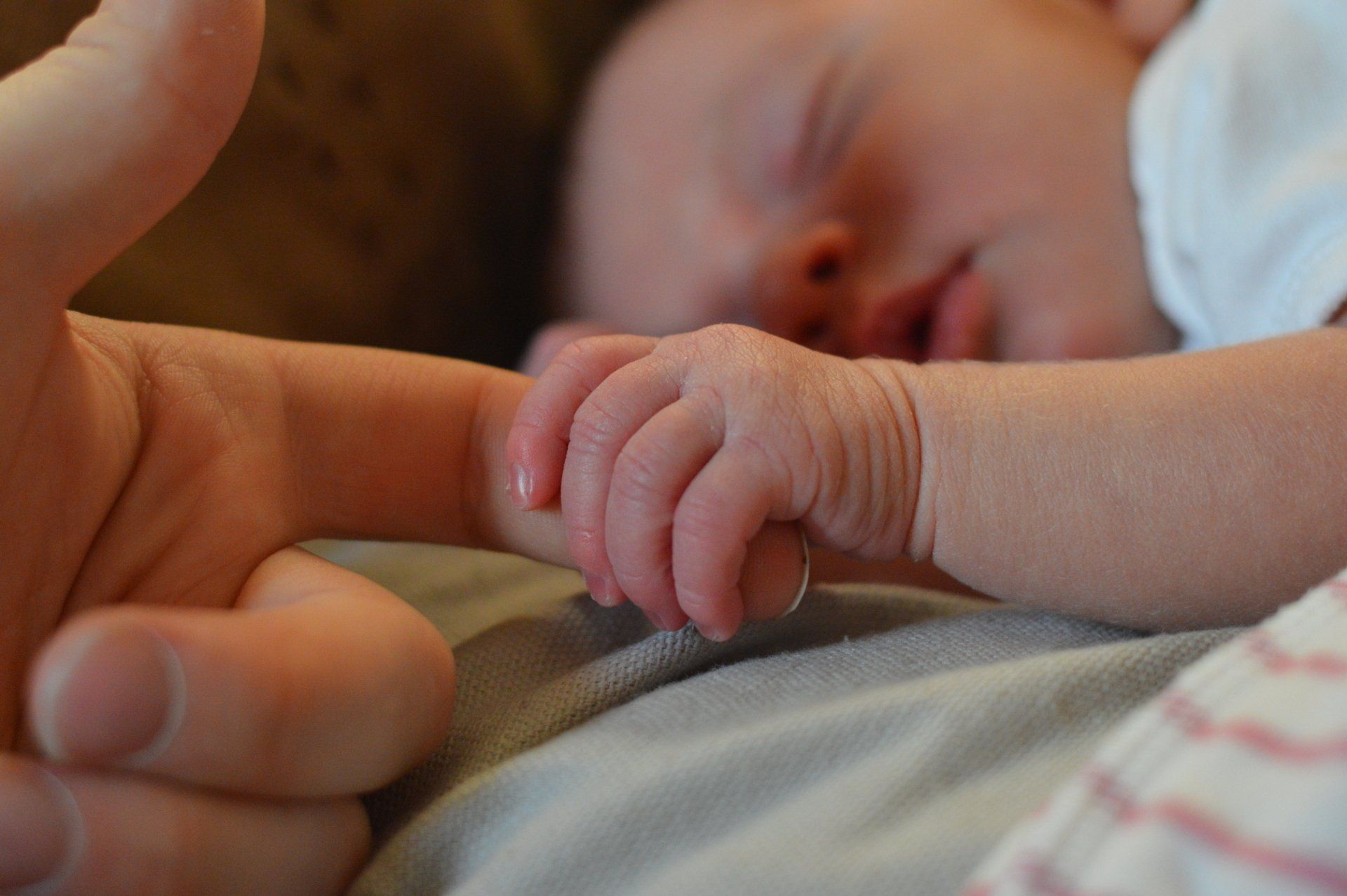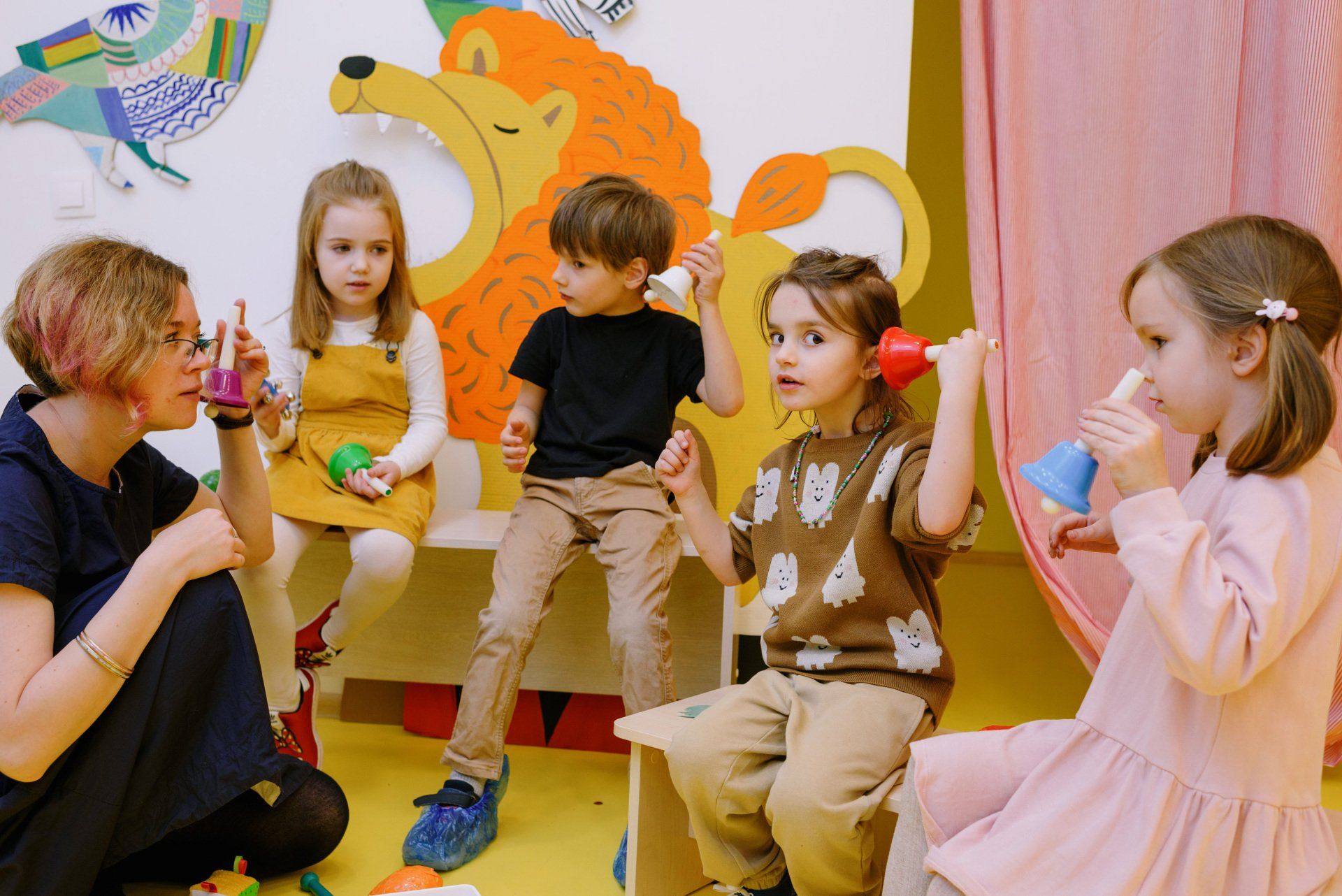TEETHING TIME!
Teething is a process that’s different for every baby.
Some parents wake up one day and are surprised to see a new tooth that they didn’t even realise was growing in the first place. For other parents, however, the teething process can be quite an unpleasant time for both them and their little one.
Don’t get it wrong — when babies are teething, they are not growing new teeth. Your baby has a full set of teeth hidden under their gums at birth and teething is the process by which these teeth break through or erupt through their gums. Most babies start teething around 6 months old and in some rare occasions, some babies are even born with teeth or a tooth.
If your baby begins to teeth a few months earlier or later this is no cause for concern unless they reach around 18 months of age — in this case, consult your pediatrician.
Apart from noticing your baby trying to chew on everything they can get their hands on, how else can you tell your baby is teething?
Some of the signs include:
- Irritability.
- Tender, swollen gums.
- Baby constantly putting objects and fingers in the mouth in an attempt to reduce the irritation .
- Rubbing cheeks and pulling ears.
- Excessive drooling that can cause a rash on their face.
- A slightly raised temperature .
- Changes in eating patterns and fussiness at mealtimes.
Time to bring out the teething toys, bibs and more bibs!
There are many different teething rings that work great when they are cooled in the fridge (fridge – not freezer) and given to baby to chew on.
Some mothers freeze cooked foods like sliced sweet potato or freeze dampened facecloths and these also work well to relieve the gums. Just remember that whatever you give them doesn’t contain small pieces (such as teething necklaces) that could be a choking hazard.
You can even give your baby a soothing gum massage with your finger or a cool cloth. Some moms and dads are even brave enough to sacrifice their own fingers as a teething toy and I’m quite sure baby enjoys that one.
Before opting for over the counter teething gels or medication, consult with your pediatrician as you may find that these are actually unnecessary and you would do well with the home-made and natural relief measures.

Fever, diarrhea, vomiting and coughing shouldn’t just be taken as symptoms of teething.
Contact your pediatrician if you notice these in your child or any other symptoms that seem concerning to you.
As stated by a number of pediatric dentists, “Teething does not cause fever, runny nose, cough, or diarrhea. Teething causes teeth.”
For tips on taking care of these newly erupted teeth, look out for our next article.
Share this post
Recent Posts


Leave your little one's health in good hands.
Track your child's growth and development, or assess arising health issues with a paediatrician you can trust.


